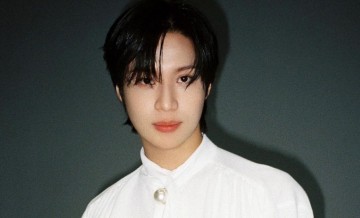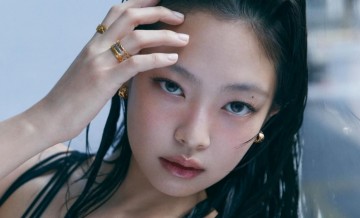K-Pop Retro-Throwback: Kim Chu Ja's 1971 Track 'Spring Rain' Proves She Is More Than Just A Pretty Face [AUDIO]
Kim Chu Ja is often referred to as Korean pop's first sex symbol.
Emerging in the early '70s, she shimmied where other female singers stood stock still. Her flirtatious album covers brought an eroticism to Korean pop that still resonates today.
As one blogger once put it: "If you got into K-pop because of KARA's butt dance, you have Kim Chu Ja to thank."
As female artists from Madonna to Beyoncé have discovered, if you are a sex symbol you are usually written about in extramusical terms. Kim is no exception; her body of work was often upstaged by her actual body.
But on songs like "Spring Rain," Kim demonstrates an artistry that goes far beyond image.
In fact, the song's slinky, hypnotic groove reveals a sound that has very little to do with shaking hips; it's positively apocalyptic.
"Spring Rain" has been widely performed and recorded by Korean artists over the past few decades and like so much of Korea's enduring pop music, it has its roots in the work of Shin Joong Hyun.
Shin, the Godfather of Korean rock, wrote the song. Kim's choice to perform the piece is no surprise, given that the two worked together closely over the years.
However, on Kim's 1971 version of "Spring Rain," she stretches out. The song's epic duration is nothing to dismiss. An unwillingness to bend to radio formatting has always been considered commercially diffident, no matter what continent an artist is on. In the relatively conservative musical landscape of Korea in the early '70s, Kim's choice to spend seven long minutes luxuriating in the song's slow burn, was a deliberate demonstration of creative will.
"Spring Rain" opens like so much Korean "psychedelic" pop from this era; organ and strummed guitar provide the canvas and an upside-down sounding backbeat provides the tension.
As is the case with much of Kim's work from the period, her star power is undeniable.
Her voice is expressive without being melodramatic. Her range is significant: when she's in her lower register, she's admittedly sultry. When she reaches a chorus, her higher notes are reached without effort.
Clearly Kim was born for this kind of work.
The ballad reaches a climax around the four-minute mark, and the Kim could have easily called it a day there. Instead, the organ re-emerges with a plaintive melody. Kim joins in with an understated unison. The pair then begin to build a new structure, a crescendo that never reaches hysterics, but keeps eking out new shades of dark anxiety.
The organ begins to fill out the space with swaths of harmony, and the magic of overdubbing allows Kim to be joined by an ever-greater team of voices, a spooky chorus that out-psychs the most slavishly fuzzed-out garage rockers of her time.
Like many other artists of the era, Kim Chu Ja's music was suppressed by a paranoid government unwilling to watch as pop music spread through Korea. For the last 30 years, Kim has been out of the public eye.
Though recently it has been reported that at 63 years old, Korea's original sex symbol is staging a full-on comeback, complete with a new album and live appearances.
Perhaps she will finally be accepted purely on musical terms.
Check out Kim Chu Ja's 1971 single "Spring Rain":
Jeff Tobias is a composer, multi-instrumentalist, and writer currently living in Brooklyn, New York. Most recently, he has been researching the history of tuning systems and working on his jump shot.
















